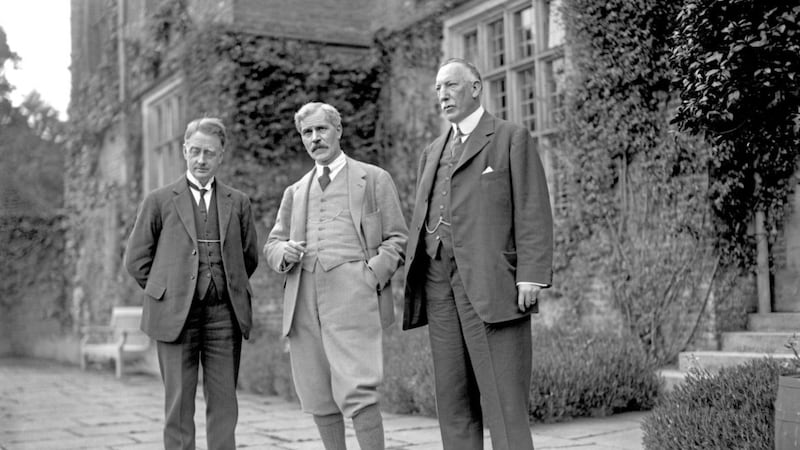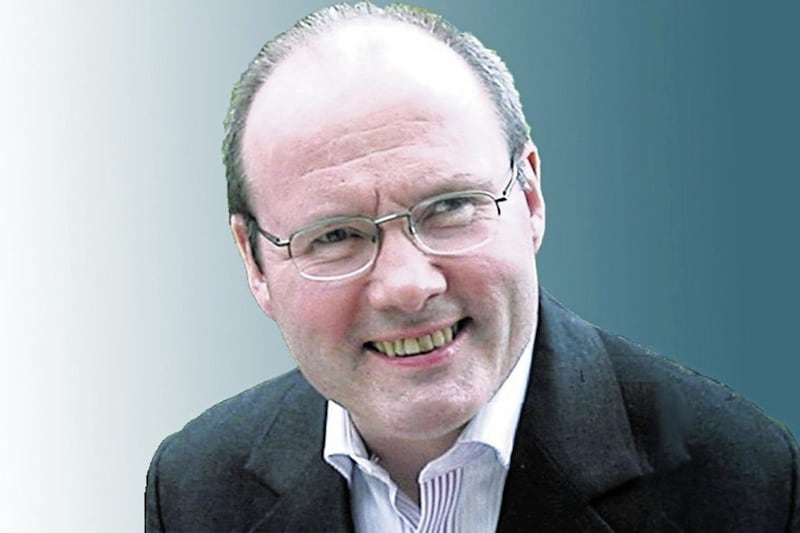At a human level few would begrudge our LGBT sisters and brothers and their relatives and friends their joy when the proposal to change the Irish constitution to redefine marriage was carried.
The historical persecution of homosexuals, extending to homophobia and hate crime against gays in our own time, an honest wish to do what was perceived as the decent and generous thing and the fall in the Irish Churchs moral authority from the abuse crisis all contributed to 62 per cent of voters responding positively to the Yes message that this was really a simple matter of marriage equality.
If only it was that simple.
That simple message, Yes to Equality, did of course resonate deeply with those who have gay and lesbian family members and gays who understandably feel they have to be silent about their God-given sexuality.
Last week an Irish News contributor opined that when it came to the referendum Nobody was suggesting a change to the definition of marriage
That is patently untrue.
My Concise Oxford Dictionary defines marriage as the legal union of a man and a woman in order to live together and often to have children.
Since ancient times the institution of marriage has existed for the mutual support of spouses and to provide a fitting environment for the procreation and upbringing of children.
Who knows what Pandoras Box has now been opened and what this so-called new era of equality will bring.
Already the Irish Labour Party is itching to move on abortion and repeal the eighth amendment that enshrines in the constitution the equal right to life of the mother and her unborn child.
When civil partnerships rightly granted same-sex couples essentially the same rights as a civil marriage in the UK 11 years ago, there were assurances that gay marriage was not on the agenda.
Ten or 20 years ago I wouldnt have been the only one whod have regarded the notion of redefining marriage as risible.
What next? In an anything-goes world of political correctness and moral relativism one is not a bigot or a homophobe to pose some challenging questions.
If the biological definition of marriage as between a man and woman can be cast aside - even for compassionate reasons - in favour of marriage being simply about "love", then why stop there?
Some of the most loving relationships I've known have been between sisters. Why should marriage be closed to them? Or to groups of people who love each other, are committed and express a desire to marry?
If this sounds far-fetched, it isn't: polygamy lobbies are growing in the USA and arguing just this. Why exclude them?
Attention now focuses on the north, the only jurisdiction in these islands holding out against same-sex marriage, thanks to the DUP.
Northern Ireland is in step with the vast majority in the rest of the world: only 18 of around 200 countries have redefined marriage and the European Court of Human Rights has consistently ruled that same-sex marriage is not a human right.
A great responsibility rests on our MLAs because the law around the precious institution of marriage is a devolved matter.
It is an uncomfortable fact for many Catholics and nationalists that the DUP (supported by the TUV) is the only major party in the assembly opposed to the redefinition of marriage as it has been understood for millennia and alive to its possible human and social consequences, including the deliberate creation of children who are not permitted to have either a natural father or a natural mother.
That is to the DUPs credit.
Surely there are some Sinn Fein MLAs who privately share the opposition of some of their voters to gay marriage.
Is it not time that SF and the SDLP followed the example of David Cameron at Westminster and Alex Salmond in the Scottish Parliament and gave their MLAs a genuine free vote on marriage?
SDLP MLAs may abstain but any SF MLAs privately opposed are forced to vote against their conscience.
When marriage last came before the assembly on April 27, some SDLP MLAs opposed in conscience to tinkering with marriage felt obliged for reasons of party discipline to make themselves scarce.
By abstaining they were not representing the many SDLP voters who share their objections but deserve some credit for refusing to toe the party line.
How many SF/SDLP voters unhappy with this will bother to vote next time? Or, perish the thought, loan their vote to the DUP to speak up for marriage?
:: Martin OBrien is a journalist and communications consultant. He is a former editor of The Irish News and award-winning BBC NI producer.








